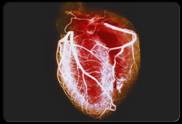Heart Disease in Women
A lot of people think that women do not get heart disease. More women die from heart disease than from anything else. Any woman can get heart disease.
When you think about heart disease, you probably think about chest pain. Women might not have chest pain. If they do, they might call it an achy, tight or "heavy" feeling instead of pain. The pain might even be in the back between the shoulder blades, instead of the chest.
Women might think these signs are no big deal because they don't "sound" like a heart attack. Don't ignore these signs. Go to your doctor of clinic right away.
What are the signs and symptoms of heart disease in women?
The most important sign is feeling really tired - even if after enough sleep. Other signs of heart disease in women are:
- Feeling sick to the stomach
- Feeling scared or nervous
- Feeling "heavy" or "tight" in the chest
- A burning feeling in the chest
- Pain in the back, between the shoulders
- Pain or tightness in the chest that spreads to the jaw, neck, shoulders, ear, or the inside of the arms
- Pain in the belly, above the belly button
There is good news:
You can take steps to keep your heart healthy.
Don't wait to get help!
Go to your doctor or clinic if you have any warning signs.
Lower Your Risk of Heart Disease
Find out if heart disease runs in your family.
Visit your doctor or clinic often. Find out if you are at risk.
Don't smoke. Stay away from other people who are smoking.
Get your blood pressure checked often. You might need medicine to keep it at the right level.
Control your diabetes.
Get your cholesterol checked often.
Stay active. Walking every day can lower your chances of a heart attack.
Eat right and keep a healthy weight.
Eat less salt.
If you take birth control pills, don't smoke.
Hormones for menopause should not be used to prevent heart attacks.
Being stressed, angry or sad a lot may add to your risk of heart attack.
If you've had a heart attack, talk to your doctor about medicine. Some medicines can help cut down the risk of having another heart attack.
Information found at MedicineNet.com. |



